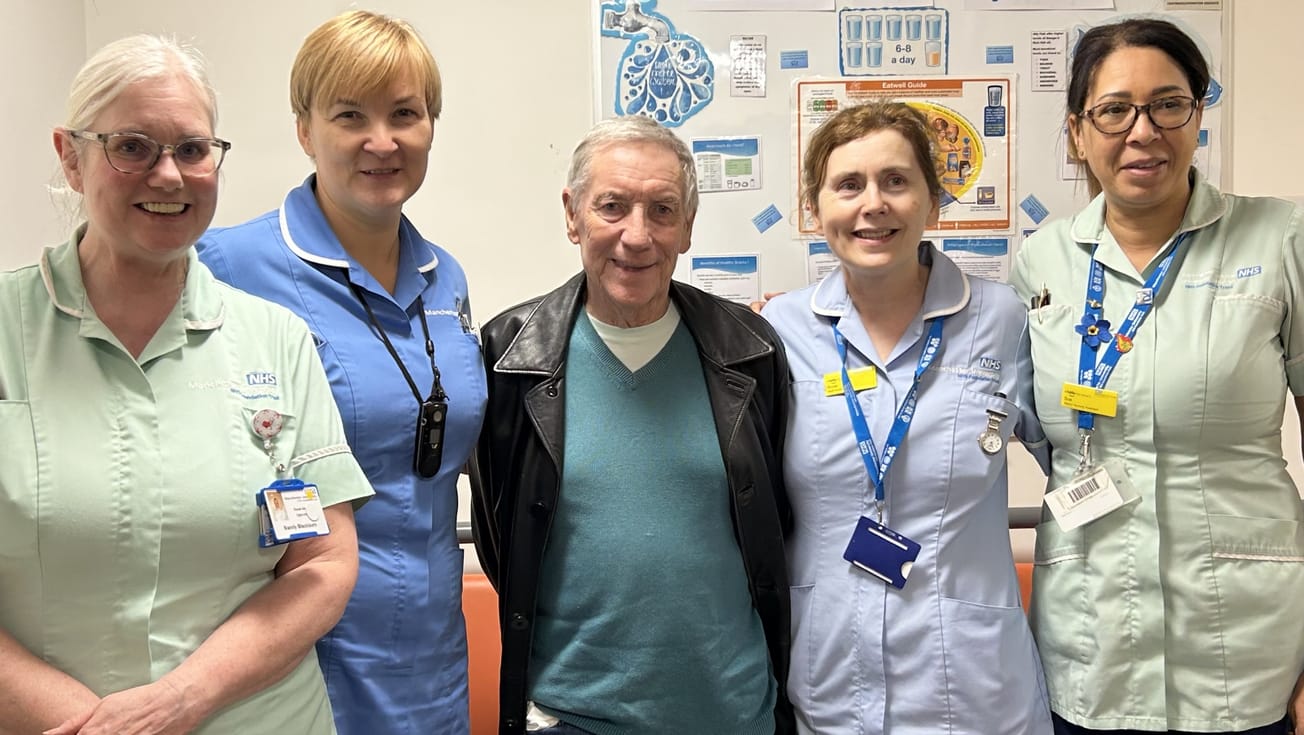Sam Brown’s life was turned upside down while still a teenager when her brother died and she was diagnosed with Crohn’s disease. Twenty five years later, the Altrincham-based nutritional therapist is using her experiences to help other people.
Here she recalls her journey so far - and, below, offers advice about the vital importance of protein.
When I was 19, I worked as a model in Tokyo. I don’t regret the experience, but the modelling world of the 90s was quite toxic, with crazy diets and unrealistic body goals, and I also found it hard to be so far away from home.
Tragically, while I was away, my brother passed away from epilepsy. My parents faxed the modelling agency (no mobile phones in those days), who promptly sent me home. They had strict instructions not to tell me what had happened, my parents wanted to do that at home. The news was devastating for me.
This combination of lifestyle, genetics and a highly stressful event is associated with the development of bowel diseases.
Six months later, after a battle with the medical profession to take me seriously, I was diagnosed with Crohn’s disease. What followed was a rollercoaster of medication and the fear of losing my bowel if it kept progressing. I felt profoundly helpless and frightened by the illness taking over my life.

I searched for help to use alongside the medical profession and found a lady who put me on a restrictive diet. Through tears and tantrums, this diet has seen me in remission for the last 25 years, though I’m happy to say the diet is not as restrictive anymore.
The transition from being at the mercy of the disease, trying to work through the pain and embarrassing symptoms at that age, to being in control of my future was life-changing.
It led to me becoming a BANT-Registered Nutritional Therapist, specialising in gastrointestinal and metabolic health.
When you have a life-altering disease, life can be miserable, and this has given me a deep desire to help people who had no idea nutrition could help them get healthy and stay there.
Addressing the root causes rather than just symptoms can offer lasting relief. Embracing a healthier lifestyle doesn't have to be dull or restrictive. You deserve to be the healthiest version of yourself.
I have helped my clients gain control of their health conditions and begin living their lives.
Conditions like Crohn’s, colitis, irritable bowel syndrome (IBS), small intestinal bacterial overgrowth (SIBO), reflux and bloating, as well as metabolic issues such as imbalances in cholesterol, fasting blood sugar and high blood pressure, not to mention stubborn weight gain and low energy levels.
The body is best considered as a whole and not a bunch of systems, which is why my Four Pillars of Health are present in all my protocols.

These four pillars are: Sleep, Omega 3:6 balance and health fats, Gastrointestinal function and detoxification, and friendly bacteria.
As you concentrate on these four pillars the whole body can start functioning better, your mind and hormones become more balanced, stomach less bloated and a feeling of lightness, and mostly your food choices are not driven by low energy levels anymore.
The principle of Nutritional Therapy uses the latest nutritional science and a range of assessment tools to enhance overall health, performance and wellbeing.
I offer options of 1-2-1 tailor made packages, or the Four Pillars of Health downloadable plan, and I’m very excited to be starting an online eight-week group session this summer.
I am passionate about everyone having affordable access to up-to-date nutritional information, and group sessions are a very cost-effective way of getting high value nutritional advice to a wider audience.
For more information or to contact Sam, visit sambrownnutrition.com or follow @sambrownnutrition on Facebook and Instagram.

Why protein should be the trusty sidekick in your health journey
When clients visit the clinic, one nutrient that consistently stands out is protein. It's not just crucial for building lean muscle tissue; it's also vital for organ function. Many of your organs, cells, and tissues rely on protein for proper regeneration.
Breaking down into individual amino acids via digestion, each amino acid plays important roles in the body. High-protein foods are essential for building muscle, burning fat, supporting metabolism, and maintaining the health of organs like the thyroid and adrenal glands, which are central to metabolic health.
In essence, protein is indispensable for overall health.
For general health and weight management, a simple guideline is consuming 1.2-1.6 grams per kilogram of healthy weight. For instance, if you weigh 73kg, you'd aim for 90-117g of protein daily, split between 3-4 meals, roughly 23-30 grams per meal. If muscle gain is your goal, you might increase this to 160g per day.
Though increasing protein intake might seem daunting, even aiming for 30g per meal, three times a day, can yield remarkable health and body composition improvements.
Here are some benefits of protein:
- Boosts Muscle Mass: Increasing protein intake, coupled with resistance training, promotes muscle growth while supporting tendons, ligaments, and other tissues.
- Aids Weight Loss: Research indicates that adequate protein intake enhances satiety, preserves lean muscle mass, and improves metabolic profile, reducing the likelihood of excessive snacking and aiding weight loss.
- Enhances Mood & Brain Function: Amino acids in protein foods support neurotransmitter function and hormone balance, influencing mood regulation. Studies suggest a steady supply of amino acids is crucial for maintaining energy levels, focus and concentration.
- Regulates Blood Sugar Levels: Protein intake influences insulin production and stabilises blood sugar levels, mitigating fluctuations. Additionally, protein slows sugar absorption during meals, supporting stable blood sugar levels.
- Promotes Bone Health: Studies show a positive link between protein consumption and improved bone health, aiding in bone repair and strength.
- Supports Cardiovascular Health: Research suggests a correlation between protein intake and a reduced risk of heart disease, potentially aiding in blood pressure regulation.
Protein is like the trusty sidekick in our health journey, a necessary nutrient that our body needs to function properly.
Incorporate both plant-based and meat foods into your diet, such as grass-fed beef, organic chicken breast, whey protein powder, beans, lentils, wild-caught salmon, eggs, natto, hemp seeds, kefir, cheese, yoghurt, nuts and seeds.
Assess your daily protein consumption in alignment with your health goals, ensuring it's spaced out to optimise absorption and utilisation, eating more protein means you may need to consume less simple and starchy carbohydrates to maintain balanced energy intake.









